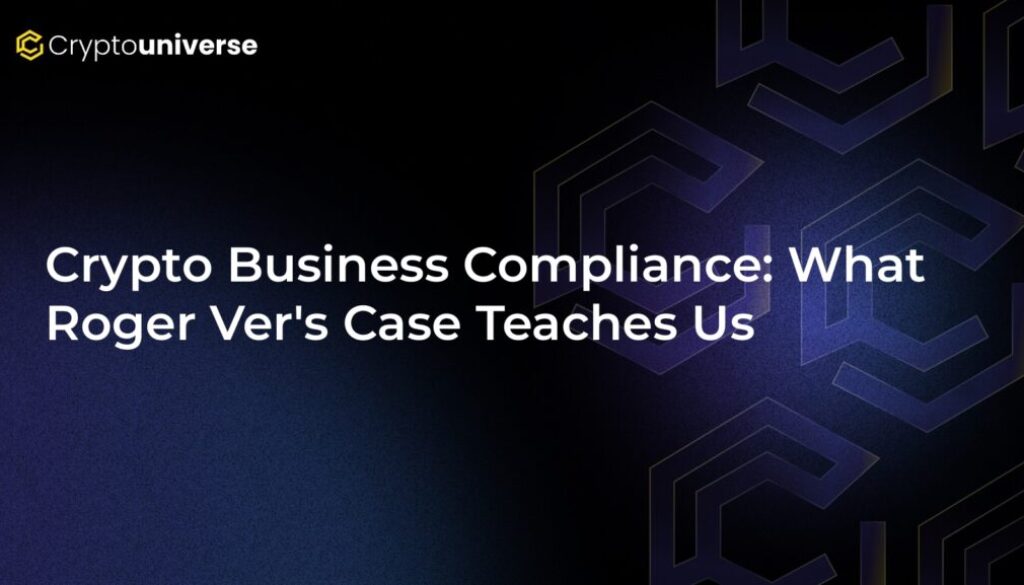Crypto Business Compliance: What Roger Ver’s Case Teaches Us

A $48 Million Wake-Up Call for the Crypto Industry
When a figure as prominent as Roger Ver, once dubbed “Bitcoin Jesus,” settles with the U.S. government for nearly $48 million in unpaid taxes and penalties, the entire crypto world takes notice. This isn’t just another headline; it’s a stark and expensive reminder that the days of regulatory ambiguity are fading fast. The case underscores a critical message for every crypto entrepreneur, investor, and business: compliance is not optional. It’s the bedrock of survival.
So, what can we learn from this high-profile showdown? This case serves as a crucial lesson in
Lesson 1: Meticulous and Accurate Reporting is Everything
At the heart of Roger Ver’s troubles was the alleged failure to accurately report his vast cryptocurrency holdings. He was accused of failing to report capital gains from the sale of thousands of Bitcoins, leading to a massive tax deficit. For any business dealing with digital assets, this is the first and most important lesson.
Key Actions to Take:
- Track Everything: Every transaction, from a simple payment to a complex DeFi yield farm, has tax implications. Businesses must implement robust systems to track the cost basis, sale price, and holding period for every single crypto asset.
- Leverage Technology: Manual tracking with spreadsheets is a recipe for disaster. Utilize specialized crypto tax and accounting software that can integrate with exchanges and wallets to automate record-keeping and reduce human error.
- Understand the Nuances: Crypto transactions aren’t just about buying and selling. Staking rewards, airdrops, and crypto-to-crypto trades are all taxable events in many jurisdictions. Ensure your accounting practices reflect this complexity.
Lesson 2: Proactive Governance and Internal Controls Are Your Best Defense
Waiting for a letter from the tax authorities is not a strategy. The best way to manage risk is to build a strong internal compliance framework from day one. This isn’t just corporate jargon; it’s a practical shield against legal and financial penalties.
A solid governance structure includes:
- Designated Compliance Officers: Appoint individuals within your organization who are responsible for understanding and implementing regulatory requirements. In many cases, hiring a licensed compliance officer with crypto expertise is a necessary investment.
- Clear Internal Policies: Establish and document clear procedures for transaction reporting, risk assessment, and tax filing. Every team member who handles company assets should be trained on these policies.
- Regular Audits: Don’t just set policies—test them. Conduct regular internal audits to ensure your controls are working effectively and identify potential vulnerabilities before they become major problems.
Lesson 3: The Regulatory Net is Global and Getting Tighter
Cryptocurrency may be borderless, but tax agencies are not. Regulators across the globe are increasing their collaboration to track digital asset transactions. The idea that assets held offshore are invisible to your home country’s tax authority is a dangerous myth.
We are seeing this in action with initiatives like:
- The Crypto-Asset Reporting Framework (CARF): Developed by the OECD, this framework facilitates the automatic exchange of tax information on crypto-assets between member countries, making it much harder to hide funds internationally.
- Increased Scrutiny: Ver renounced his U.S. citizenship, but that didn’t shield him from his tax obligations. Governments are becoming more aggressive in pursuing what they are owed, regardless of where a person or company is located.
- Evolving Reporting Requirements: In the U.S., the upcoming Form 1099-DA will require brokers to report digital asset transactions directly to the IRS. This is just one example of how regulators are building a more transparent and enforceable system. Staying informed about these changes is crucial.
The Bottom Line: Adapt or Face the Consequences
The Roger Ver case is more than a story about one individual; it’s a signal of the crypto industry’s maturation. As digital assets become more integrated into the global economy, they are being subjected to the same level of scrutiny as traditional finance. For businesses in the space, this means the Wild West era is over.
By prioritizing accurate reporting, building strong governance, and staying vigilant about the global regulatory landscape, you can protect your business from crippling fines and legal battles. Don’t wait for a wake-up call of your own. The time to take compliance seriously is now.


